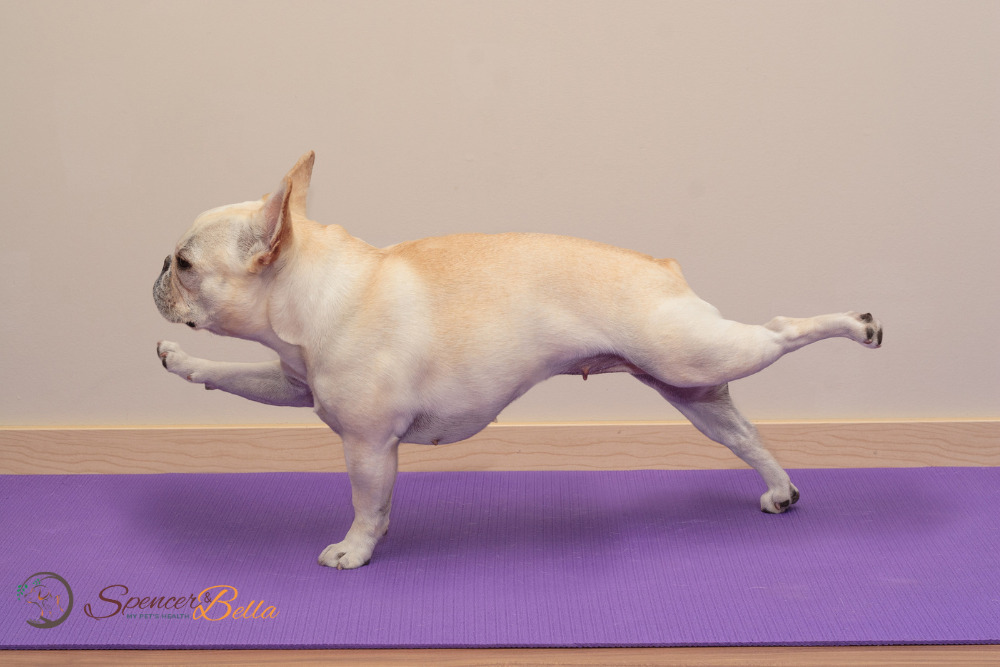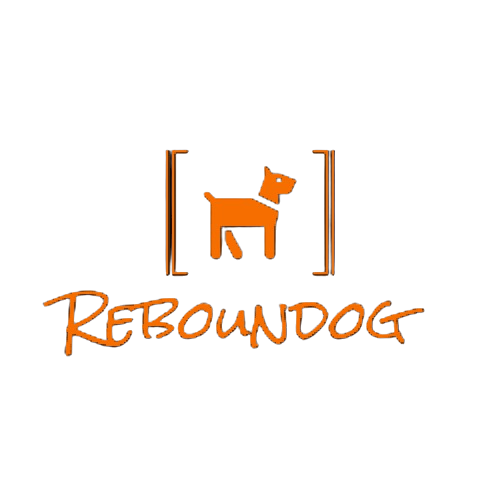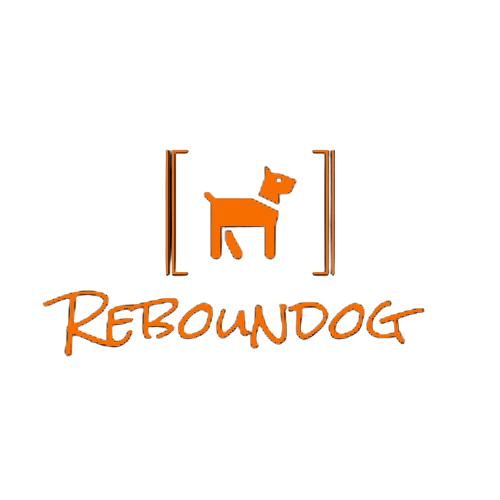French Bulldog Lifespan: Unraveling the Secrets to a Long and Healthy Life

French Bulldogs have captured the hearts of dog lovers worldwide with their irresistible charm and lovable personalities. As a proud owner or enthusiast of this beloved breed, it is important to have a thorough understanding of their lifespan and overall well-being. In this comprehensive guide, we will explore the various factors that can influence french bulldog lifespan, including genetics, lifestyle, and healthcare. Additionally, we will discuss common health issues that may affect Frenchies and provide practical tips for maintaining their health and happiness. So, sit back, relax, and join us on this enlightening journey as we uncover the secrets to a long and healthy life for French Bulldogs.
Factors Affecting French Bulldog Lifespan
Genetics and Breed Characteristics
The genetics of French Bulldogs play a significant role in their lifespan. Due to their unique breed characteristics, such as their brachycephalic (short-faced) structure, they are more prone to certain health issues. Conditions like brachycephalic airway syndrome, which affects their breathing, can impact their quality of life and lifespan. Responsible breeding practices, such as selecting healthy parents and conducting genetic testing, can help reduce the prevalence of these hereditary conditions, promoting a longer and healthier lifespan for French Bulldogs.
Nutrition and Diet
Proper nutrition is crucial for supporting the longevity and overall health of French Bulldogs. Providing a balanced and high-quality diet is essential to meet their specific nutritional requirements. Choose a dog food formulated for their breed and life stage, ensuring it contains essential nutrients, vitamins, and minerals. Avoid overfeeding and carefully monitor their weight to prevent obesity, as excessive weight gain can lead to various health problems and shorten their lifespan. Consult with your veterinarian to determine the best diet plan for your Frenchie’s individual needs.
Exercise and Physical Activity
Regular exercise is key to maintaining a healthy weight and promoting physical and mental well-being in French Bulldogs. However, it is important to be mindful of their brachycephalic nature, which makes them more susceptible to overheating and respiratory issues. Engage in moderate exercise activities that suit their energy levels and physical capabilities, such as daily walks and interactive play sessions. Be cautious of extreme weather conditions, particularly heat and humidity, and provide ample rest and shade to prevent heat exhaustion. Balancing exercise and rest are crucial for their overall health and longevity.
Healthcare and Regular Check-ups
Consistent veterinary care is essential for ensuring the long and healthy life of your French Bulldog. Schedule regular check-ups with your veterinarian to monitor their overall health, receive necessary vaccinations, and address any potential health concerns. Preventive measures, such as parasite control and dental care, are also vital for maintaining their well-being. Early detection and treatment of health issues can impact french bulldog lifespan, so stay proactive in seeking veterinary care and following recommended preventive healthcare measures.
Environmental Factors
Creating a safe and supportive environment is important for promoting a long and healthy life for French Bulldogs. Ensure their living space is free from potential hazards, such as toxic plants, chemicals, and small objects that they could swallow. Minimize their exposure to extreme temperatures, as they are sensitive to both hot and cold weather. Provide a comfortable and stress-free environment that promotes mental well-being and reduces anxiety. A calm and secure living space can positively contribute to their overall health and longevity.
Health Issues in French Bulldogs
Understanding Common Eye Conditions and Treatment
French Bulldogs are prone to certain eye conditions that require attention and proper management to maintain optimal eye health. Here are some common eye problems that can affect French Bulldogs:
- Cherry Eye: Cherry eye is a prevalent condition in French Bulldogs where the gland in the third eyelid becomes prolapsed and visible. It appears as a red or swollen mass in the corner of the eye. While the exact cause is not fully understood, it is believed to be a result of weakened connective tissue. Treatment options for cherry eye include medical management to reduce inflammation and surgical correction to reposition the gland. It is important to seek veterinary care promptly to address cherry eye and prevent complications.
- Corneal Ulcers: French Bulldogs are susceptible to corneal ulcers, which are open sores on the surface of the eye. These ulcers can be caused by trauma, foreign objects, or underlying eye conditions. Symptoms may include excessive tearing, squinting, redness, and discharge. Prompt veterinary examination and treatment are crucial to prevent corneal ulcers from worsening and potentially leading to vision loss.
- Dry Eye (Keratoconjunctivitis Sicca): Dry eye is a condition in which the eyes do not produce enough tears to keep the surface lubricated. This can lead to discomfort, redness, inflammation, and a thick discharge. Regular eye examinations by a veterinarian are important to diagnose and manage dry eye, as it can be a chronic condition requiring ongoing treatment.
- Cataracts: Cataracts are characterized by the clouding of the lens inside the eye, resulting in decreased vision or blindness. While cataracts can occur in any dog breed, French Bulldogs may be genetically predisposed to developing them. Regular eye examinations can help detect cataracts early on, allowing for appropriate management and potential referral to a veterinary ophthalmologist for surgical intervention if necessary.
Our SUPERFOOD “Human Grade” High Potency All-Natural Supplement helps reduce inflammation in all parts of the body and supports all systems in the body including digestion, hip and joint, skin and coat, circulatory system, and immune system.
Read our blog about the benefits of Cellular Boost daily for your cats and dogs.
Allergies and Skin Conditions in French Bulldogs: Promoting Comfort and Well-being
French Bulldogs are prone to allergies and various skin conditions that can cause discomfort and affect their overall quality of life. It is essential for French Bulldog owners to be vigilant and proactive in identifying and managing these issues. Here are common symptoms to look out for:
- Itchy skin: French Bulldogs with allergies may frequently scratch, bite, or lick their skin. They may exhibit signs of irritation and discomfort, such as redness, inflammation, and hot spots.
- Rashes: Allergic reactions or skin conditions can result in the development of rashes or hives on their skin. These may appear as raised bumps, red patches, or areas of flaky skin.
- Recurrent ear infections: Allergies can also contribute to ear infections in French Bulldogs. Symptoms may include ear scratching, head shaking, a foul odor emanating from the ears, and discharge.
General Strategies to Manage Allergies and Skin Conditions
To manage allergies and skin conditions in French Bulldogs, it is important to work closely with a veterinarian. They can help identify the specific allergens causing the reactions and recommend appropriate treatment options. Here are general strategies to consider:
- Identifying and avoiding allergens: By determining the allergens that trigger a reaction in your French bulldog, you can take steps to minimize exposure. This may involve changes to their diet, environmental modifications, or avoiding specific substances or materials.
- Using hypoallergenic grooming products: Opt for gentle, hypoallergenic grooming products specifically designed for sensitive skin. This can help reduce the risk of further irritation and allergic reactions.
- Maintaining proper hygiene: Regular bathing and grooming practices can help manage allergies and maintain skin health. Keep their skin clean and dry to prevent bacterial or fungal infections.
Remember, every French Bulldog is unique, and their specific needs may vary. Consulting with a veterinarian will provide tailored guidance and treatment options to ensure the comfort and well-being of your furry companion. By addressing allergies and skin conditions promptly and effectively, you can help your French Bulldog lead a long, healthy, and itch-free life.
Nose Problems and Respiratory Health: Ensuring Optimal Breathing for French Bulldogs
French Bulldogs are known for their distinctive short muzzles, which can contribute to certain respiratory issues, including brachycephalic airway syndrome. This condition arises from the anatomical structure of their airways, which can be narrower compared to breeds with longer muzzles. As a result, French Bulldogs may experience breathing difficulties and exhibit symptoms such as:
- Labored breathing or rapid breathing.
- Noisy breathing, characterized by snorting or snoring sounds.
- Difficulty exercising or becoming easily fatigued.
- Inability to tolerate heat or excessive panting.
To promote optimal respiratory health for French Bulldogs, it is crucial to ensure proper airflow and create a comfortable environment for them. Avoid exposing them to stressful situations that can exacerbate their breathing difficulties. Additionally, keeping them in a cool and well-ventilated environment can help prevent overheating, which can further strain their respiratory system.
If you notice any concerning symptoms or signs of respiratory distress in your French Bulldog, it is important to consult with a veterinarian who can provide proper guidance and support. Regular check-ups and close monitoring of their respiratory health will help ensure their well-being and contribute to a longer and healthier life for these adorable companions.
Addressing Genetic Health Concerns in French Bulldogs
These dogs, like many dog breeds, are susceptible to certain genetic conditions that can impact french bulldog lifespan and health. It is important for responsible breeders to prioritize health testing and selective breeding practices to reduce the occurrence of these genetic problems. Here are genetic health concerns commonly associated with French Bulldogs:
- Hip Dysplasia: Hip dysplasia is a condition where the hip joint does not develop properly, resulting in joint instability and potential pain and lameness. While it is a condition that can affect any breed, French Bulldogs are known to have a moderate prevalence of hip dysplasia. Health testing using methods like hip scoring can help identify breeding dogs with healthier hip joints, reducing the likelihood of passing on the condition to offspring.
- Patellar Luxation: Patellar luxation is the displacement of the kneecap, which can cause discomfort, limping, and difficulty moving. It is another genetic condition that can affect French Bulldogs. Health testing can help identify dogs with normal patellar function, reducing the risk of passing on this condition to future generations.
- Cardiac Diseases: French Bulldogs can be prone to certain cardiac conditions, including congenital heart defects and heart murmurs. Regular cardiac evaluations by a veterinarian, including listening to the heart for abnormal sounds and performing echocardiograms, can help detect and manage these conditions.
Maintaining a Healthy French Bulldog
Diet and Nutrition Guidelines
- Feed your French Bulldog a balanced diet consisting of high-quality dog food.
- Avoid foods that are toxic to dogs, such as chocolate, onions, and grapes.
- Monitor their weight and adjust the portion sizes accordingly to prevent obesity.
Exercise Recommendations for French Bulldogs
- Engage in regular exercise activities such as short walks, playtime, and interactive games.
- Avoid strenuous exercise or activities that can strain their joints and respiratory system.
Grooming and Skin Care Tips
- Regularly brush their coat to minimize shedding and promote a healthy skin and coat.
- Clean their facial folds and ears to prevent infections.
- Trim their nails regularly and maintain good oral hygiene.
Preventive Measures and Vaccinations
- Follow your veterinarian’s recommendations for vaccinations and parasite prevention.
- Keep their living space clean and free from parasites.
- Regularly check for any changes in behavior or physical appearance and seek veterinary attention when needed.
Promoting Longevity and Happiness

Mental Stimulation and Enrichment
- Provide your French Bulldog with interactive toys and puzzles to keep their minds stimulated.
- Teach them new tricks and commands to keep them mentally engaged and prevent boredom.
Building a Strong Bond with Your French Bulldog
- Spend quality time with your Frenchie through play, training, and cuddling.
- Establish a strong bond based on trust, love, and positive reinforcement.
Socialization and Interaction with Other Dogs
- Expose your French Bulldog to various social situations and introduce them to other dogs from a young age.
- Proper socialization helps them develop good behavior and prevents fear or aggression.
Creating a Safe and Comfortable Environment
- Provide a safe and comfortable living space for your French Bulldog, with cozy bedding and adequate ventilation.
- Avoid exposing them to extreme temperatures or leaving them in a confined space for extended periods.
Key Considerations When Choosing a French Bulldog Breeder
When purchasing a French Bulldog from a breeder, there are several key factors to consider ensuring you are dealing with a reputable and responsible breeder:
- Health Testing: Reputable breeders prioritize the health and well-being of their dogs. They conduct health screenings and tests on their breeding dogs to identify and minimize the risk of genetic diseases or conditions commonly found in French Bulldogs. Ask the breeder about the health testing they have done on the parents and if they can provide documentation.
- Breeding Standards: A responsible breeder follows ethical breeding practices and adheres to breed standards set by recognized kennel clubs or breed organizations. They breed dogs with the intention of improving the breed, not just for profit. Inquire about the breeder’s breeding program, their goals, and how they select their breeding dogs.
- Socialization and Environment: A good breeder ensures that their puppies are raised in a clean and stimulating environment that promotes proper socialization. The puppies should be exposed to various people, noises, and experiences to help them develop into well-rounded and confident dogs. Ask the breeder about the socialization efforts they undertake with their puppies.
- Health Guarantees: Reputable breeders often provide health guarantees for their puppies. They may offer warranties against genetic health conditions for a specific period, demonstrating their commitment to producing healthy puppies. It is important to review and understand the terms and conditions of any health guarantee provided.
- Breeder’s Reputation and References: Research the breeder’s reputation and ask for references from previous puppy buyers. A reputable breeder will have a positive history and will be willing to provide references from satisfied puppy owners. Consider reaching out to these references to inquire about their experience with the breeder and the health and temperament of their French Bulldogs.
- Support and Guidance: A responsible breeder is available to offer ongoing support and guidance to puppy buyers. They should be willing to answer your questions, provide advice on raising and caring for a French Bulldog, and be a resource for any concerns that may arise throughout the dog’s life.
Final Thoughts on French Bulldog Lifespan
French Bulldogs bring joy, companionship, and unconditional love into our lives. Understanding french bulldog lifespan, health concerns, and how to maintain their well-being is essential for responsible ownership. By following the guidelines outlined in this blog post, you can provide your furry friend with the best possible chance at a long, healthy, and fulfilling life.





Comments ()